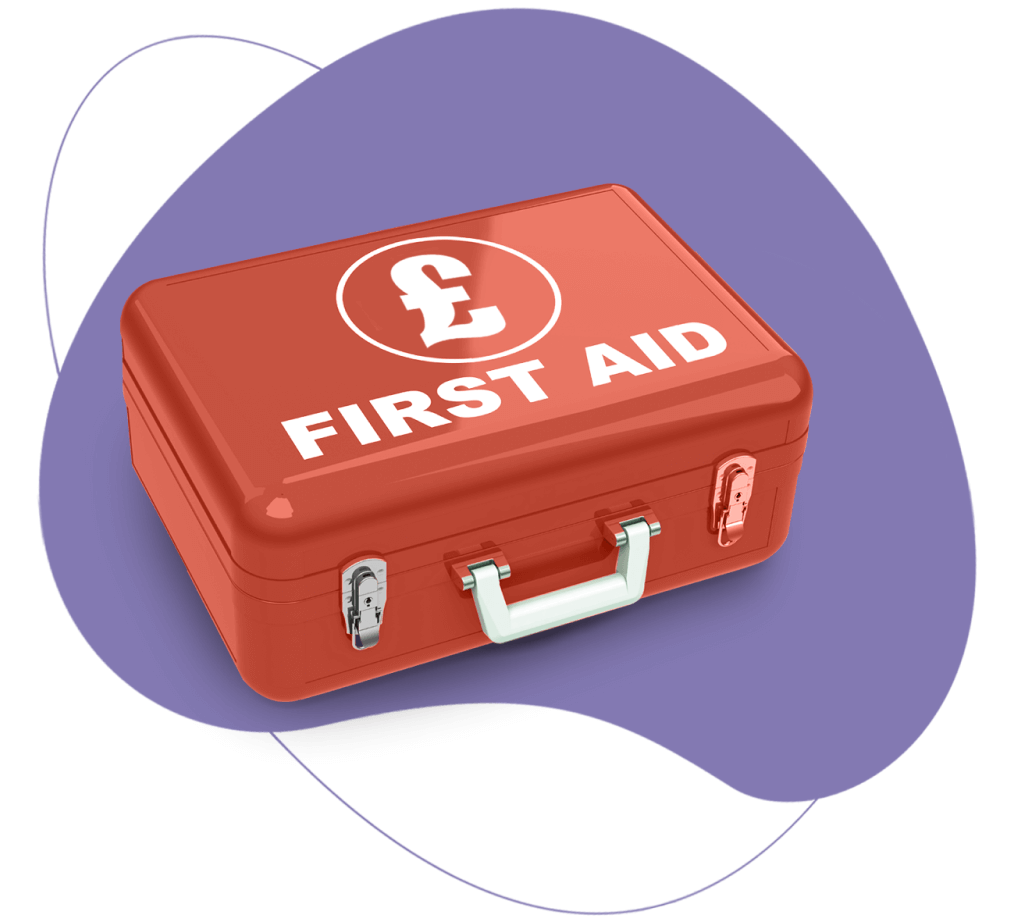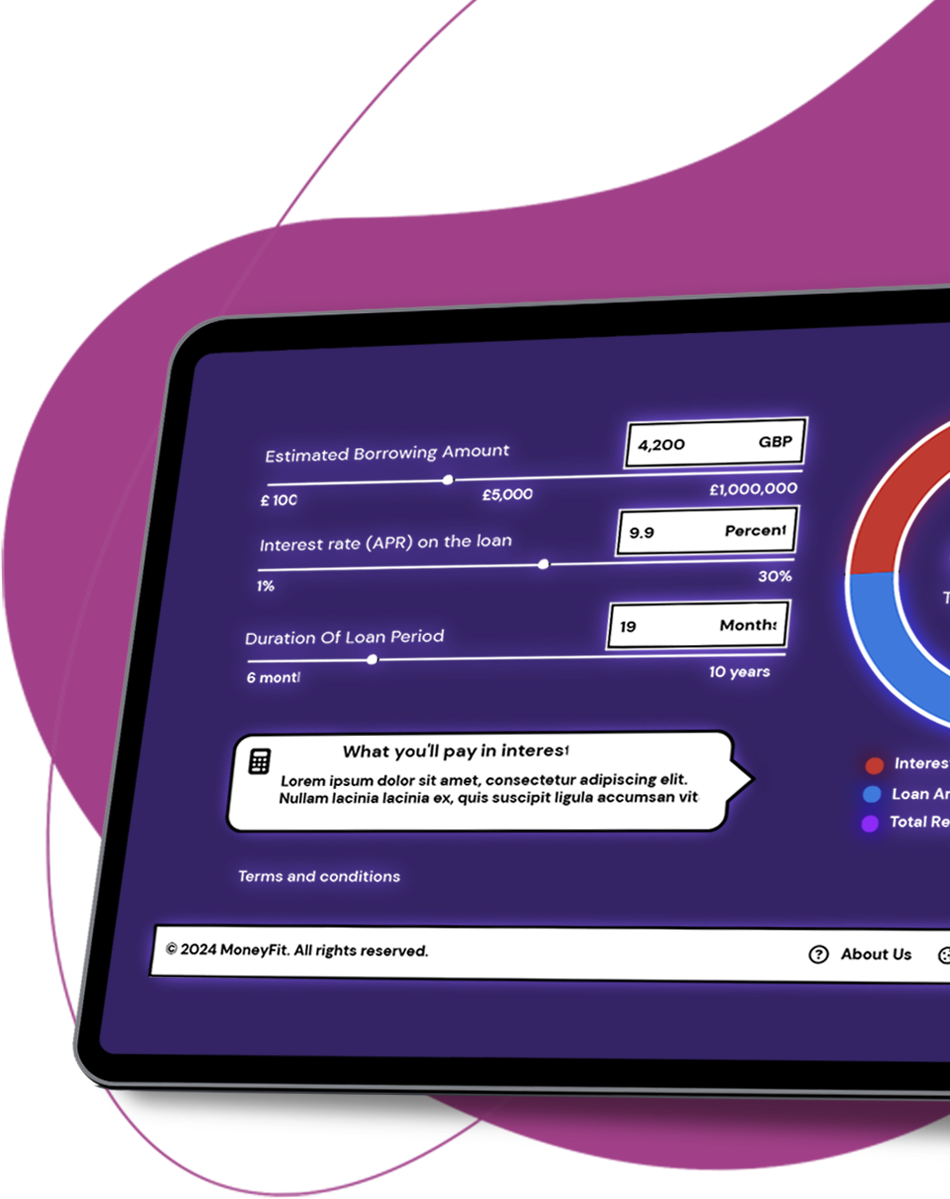
Help and Support
Money worry is one of the biggest causes of stress that people face.
In this section you'll find help and support for the common causes of money stress and links to useful free resources.
Unmanageable debt has a huge impact on our sense of control, causing anxiety, worry, sadness and can even lead to physical illness.
Interest rates and fees on loans compounds the stress, and as every day goes by, the debt increases and becomes more of a problem. For some, the stress and worry of debt is so bad that they just want to run away and hope that the debt just disappears. The problem is that when debt isn’t addressed, it just gets worse.
The good news is that there is help available. No matter how the debt has come about, or how big the debt is, support is available. It’s important to face up to it and take action to manage the debt and get the support needed.The worst action to take is no action at all.
A Debt Emergency occurs when you feel that your debt is out of control, causing you stress, anxiety, panic, hopelessness and even depression. These are normal responses to stress, and can be really difficult to deal with.
3 Steps to deal with a debt emergency
Here are three steps to take when facing a debt emergency; they are similar to how we deal with any first aid emergency.
This is the first step in dealing with debt. It can be painful, but it's the best way to start to take control. Open all letters, emails and communications about your debt, and make a note of all the debt owed, who is owed, how much, when it’s due and what the interest payments are.
Debt that is overdue may incur additional charges and penalties, and will continue to increase due to interest. Prioritise the debts, listing those that have been overdue for the longest period as top priority. If all of the debts are top priority, that’s fine, at least you have visibility now of all the debts.
This step is critical to deal with a debt emergency. Help is always available, so seek help as soon as possible. Contact the organisations owed the money and inform them that you are struggling to repay the debt. Regardless of their response, now contact one of the debt support services listed in the link below. You can access free debt support online or via the telephone. Some services offer face-to-face meeting services and a debt coach to help you to deal with the debt emergency.
MoneyHelper has resources and access to free online and telephone debt support services
You may also be able to access the Government’s Breathing Space (Debt Respite Scheme)
Please take these steps before considering taking out further loans to pay off your debt.

Scam Alert!
Unfortunately, there are dishonest criminals out there who seek to defraud people every day, using increasingly sophisticated and convincing methods to steal money from innocent people.
A recent study by a leading High Street bank found that more than 7 in 10 adults have been targeted by scams in the last 12 months, receiving an average of 3 scam attempts each week. It’s a volume game. The most prevalent scams in the last 12 months include phishing scams (37%), trusted organisation scams (21%) and refund scams (13%).
13% of Brits have lost money to scams, with 7% having lost as much as £5,000, with an average loss of £350 per person.
Being scammed can be a traumatic experience. Victims of scams don’t just lose their money. Their mental health can also be severely impacted, leading to feelings of guilt, distrust, shame, anger and embarrassment.
If you have been a Victim of a Scam
If you believe you have been a victim of a scam, notify your bank, building society, credit card company or pension provider immediately. Don’t be embarrassed to contact them. Thousands of people are victims of scams every month, and their staff are trained to offer support and advice.
If you are worried that you have been a victim of a scam, Citizens Advice has clear and up to date advice on what you need to do and how to protect yourself from further risk. They also have resources on emotional support if you have been scammed.
There are many types of scam and fraud and criminals use ever evolving and more sophisticated tricks and techniques to con innocent people out of their money. Victim Support has lots of useful information and advice regarding fraud, how to spot it and what to do if you’ve been affected.
Visit the National Cyber Security Centre website for information on how to spot scams and phishing attempts and how to report them.
The Ofcom website also has information on how to report scam texts and mobile calls - by reporting suspected scams you are doing your small bit in helping to protect people from fraud.
You can also report nuisance calls and messages via the Information Commissioner’s Office website.
Sign up to the free Which? Scam Alerts service to help you spot and avoid the latest scams.
A particular target area for scammers is trying to con people out of their hard-earned pension funds. It is important to remain vigilant and be aware of the techniques scammers might use to deprive you of your future retirement funds. The AgeUK website has clear and useful information about pension scams, how to spot them, and what steps to take if you think you have been scammed.

Gambling Addiction Support
The UK has one of the biggest gambling markets in the world, generating profits of over £14.2 billion per year.
Gambling is accessible 24/7, and research has shown that harms associated with gambling are wide-ranging, including not only harms to the individual gambler, but also to their families, close associates and wider society.
“It’s really not a problem, I could stop at any time” is a common statement, but the reality is often very different. As with any addiction, stopping is very hard, and often raw self-control just isn’t enough. Professional support, advice and accountability is needed.
If you or someone you know is impacted negatively by gambling, there is free, confidential and professional support available.
You can receive free, confidential face-to-face, telephone or live chat support from The National Gambling Helpline.
For further advice and support on gambling addiction, whether for yourself or for someone you know, Citizens Advice has some excellent resources.

Money and Mental Health
Research by Champion Health found that money worry is the biggest cause of stress outside of work, with 71% of people stating that they experience moderate to high levels of stress.
Financial and Mental Wellbeing are closely linked. If we are worried and stressed about money, we may find it more difficult to manage our finances, which in turn leads to more anxiety and stress.
The topic of money can have an impact on how we feel. It can make us feel happy, sad, worried, guilty, ashamed and low, as well as impacting our sleep, our ability to concentrate and our relationship with others.
If your personal finances are causing you to feel worried or low, there is help available. Explore the resources below to find information and support for your needs.
StepChange is a charity offering free confidential advice and support for anyone worried about debt.
The StepChange helpline can be reached on 0800 138 1111 (Monday-Friday 08:00-20:00; Saturday 09:00-14:00).
As well as your GP, you can contact Anxiety UK if you feel like you are affected by anxiety, stress or anxiety-based depression. Help is available, so don’t hesitate to reach out.
The Anxiety UK helpline can be reached on 03444 775 774 (Monday-Friday 09:30-17:30).
MIND is another mental health charity that exists to make sure no one has to face a mental health problem alone.
The MIND helpline can be reached on 0300 123 3393 (Monday-Friday 10:00-18:00).
Turn2Us helps people in financial hardship gain access to welfare benefits, charitable grants and support services.
Their helpline can be reached on 0808 802 2000 (Monday-Friday 09:00-17:30)






